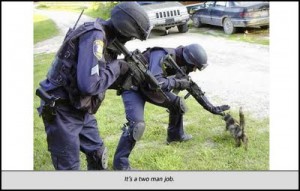Open Data and imagination

Two very interesting questions about open data and government from Bernard Jenkin MP in the context of threats to open data:

Two very interesting questions about open data and government from Bernard Jenkin MP in the context of threats to open data:

You are likely to have one of two completely contradictory responses to this question. Your friends may be able to predict which way you’ll go:
When you buy new underwear from the store, must you wash it before wearing?
Your reaction will possibly be one of a slightly confused “why would you?, or you’re cringing and shuddering at the thought of why anyone woudn’t. Both are common responses, and neither side necessarily fully understands the mindset of the other. (You may also now be thinking of GCHQ’s Sir Iain Lobban in his underwear, in which case, therapy is available &mdash type it into a search engine, and GCHQ will get back to you).
As faith is for underwear, so it goes for the issues of surveillance and transparency (it’s at this point that the underwear metaphor falls down).
It’s not that NSA/GCHQ is doing things that are necessarily illegal (they can get general warrants so it isn’t, but that’s a different point), and it’s not that (Alexander or Lubban’s) new underwear is necessarily pre-soiled, but neither of those suggestions smell quite right in a democracy. Some things should be secret, but mass surveillance, the collection of everything on everyone, should be (and arguably, is) illegal, and is certainly bad civic hygiene. You may believe that the store does it’s best, but that doesn’t reduce the need for the security of washing, or cryptography.
While the Intelligence and Security Committee can say that GCHQ did nothing illegal in PRISM, that’s rather a narrowly phrased question. It’s good that the answer is yes, but it’s fundamentally unconvincing. The store may insist that you may not return pre-worn underwear (but what would happen if someone tried?), one group requires it to be washed, just to make sure, and requires honest transparency for much the same reason. Trust, but wash.
The analogy also goes a little wider.
Surprising a bureaucrat isn’t illegal, nor is it terrorism, but when events beyond the bureaucracy’s expectations occur, it can be impossible from within to tell the difference between surprise and terror. As a result, we all to often see the merger of surprise and terrorism charges.